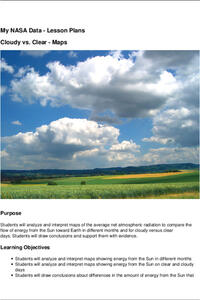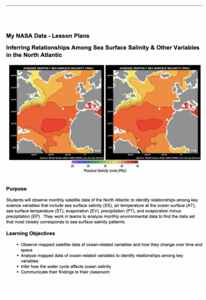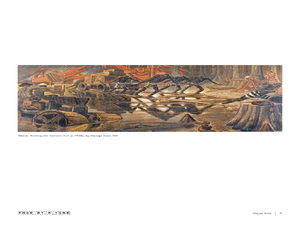American Battlefield Trust
Contrasting the North and South Before the War
Fundamental differences between the North and South led to the South adopting a system of enslaved labor. These abstract ideas become concrete when class members create a standing cube using information provided in the resource. Young...
Teaching Tolerance
Using Photographs to Teach Social Justice | Exploring Identity
Even without captions, photographs can tell amazing, involved, and complex stories. Viewers analyze two photos, consider what the pictures reveal about the subjects' identity, and determine the social justice issues represented in the...
Encyclopedia Britannica
Campaign Photo Analysis
It's the art of the image! As part of a study of the 2020 Presidential race, groups analyze an image of a candidate, first from an objective point of view and then subjectively. They then prepare a presentation detailing what they...
Nemours KidsHealth
Alcohol: Grades 9-12
Two activities ask high schoolers to consider the role of alcohol culture in their lives. First, groups analyze the types of appeals used in newspaper ads for alcoholic drinks and compare those images with what they have observed....
National Endowment for the Humanities
The Freedom Riders and the Popular Music of the Civil Rights Movement
The Civil Rights Movement of the 1960s marched to its own beat—literally. Using songs from the era, as well as other primary sources such as King's "I Have a Dream" speech, class members analyze lyrics to discover how music and protest...
DocsTeach
Political Cartoon Analysis: No Taxation Without Representation
Delve into the world of political cartoons in a lesson on the American Revolution. Scholars practice analyzing an original political cartoon, answer questions, and participate in group discussion. Young academics gain an understanding of...
Museum of the American Revolution
Historical Analysis: Objects Tell Stories
Dig this! Young archeologists discover what objects teach us about the past. The activity uses an image of a Revolutionary War artifact to help historians practice analyzing the past. Scholars study the object and complete a worksheet to...
Newseum
Political Persuasion: It’s All About Image
Political candidates work hard at creating an image they believe will appeal to voters. High schoolers collect 10 photos and other images of a candidate and analyze them to determine what techniques create a positive or negative impression.
NASA
Cloudy vs. Clear - Maps
Find out the science of how clouds keep Earth cooler on hot days. Using guided discussions, investigators analyze and interpret maps of how much solar energy Earth receives at different times of the year. Participants draw conclusions...
NASA
Inferring Relationships Among Sea Surface Salinity & Other Variables in the North Atlantic
Some say a picture is worth a thousand words—even from a hundred miles away! Learners review satellite data to analyze ocean variables such as temperature, salinity, evaporation, and precipitation. They look for patterns in the data and...
Franklin D. Roosevelt Presidential Library & Museum
Pearl Harbor Activity #4: Who is the Audience?
Young historians use the prompts on a worksheet to analyze President Roosevelt's "Day of Infamy" speech. They identify the intended audience for the speech, the devices FDR used to persuade his audience, the responses promoted, and the...
DocsTeach
Women of Color and the Fight for Women's Suffrage
Introduce young historians to primary source analysis with a lesson that teaches them how to use a four-step process to analyze a photograph of a 1913 Suffrage Parade. Groups practice the process and share their observations with the...
MENSA Education & Research Foundation
Magical Musical Tour: Using Lyrics to Teach Literary Elements
Language arts learners don't need a lecture about poetry; they listen to poetry every day on the radio! Apply skills from literary analysis to famous songs and beautiful lyrics with a lesson about literary devices. As...
Curated OER
Tuck Everlasting Unit
Natalie Babbitt's award winning fantasy, Tuck Everlasting, is the anchor text in a unit plan that focuses on identifying similes, metaphors, imagery, and personification in the text and analyzing how these elements effect the...
Curated OER
Gathering And Analyzing Information
Learners participate in a lesson that focuses on the skill of analyzing information. They pick the subject for keeping engagement throughout the assignment. The information is analyzed using higher order thinking skills and they develop...
Curated OER
Create and Analyze Rectangular Patterns
Middle schoolers explore the concept of geometric patterns. In this geometric pattern lesson plan, students use Microsoft Excel to explore geometric patterns. Middle schoolers analyze growth rates of pattern growth. Students create...
Curated OER
Accounting - Analyzing Transactions to Debit/Credit Parts
High schoolers are introduced to how transactions are analyzed with debits and credits. In groups, they complete a T-chart in which the account increases with credits and decreases with debits. To end the lesson, they analyze the various...
Curated OER
Analyzing Visual Symbols
Young scholars analyze and identify visual symbols in everyday life and during a museum visit. In this visual symbol lesson, students study associated vocabulary such as analyze and interpret. They find and note attention getting symbols...
Curated OER
Analyzing Primary and Secondary Sources to Assess the Decisions and Policies of Sitting Bull, Red Cloud, and the U.S. Government
Students examine U.S. policies regarding Native Americans. In this Native American history lesson plan, students analyze provided primary and secondary sources concerning Red Cloud, Sitting Bull, and the Dawes Act. Students use the...
Curated OER
Analyzing Political Cartoons
Seventh graders identify a political cartoon and analyze a pre-Revolutionary War political cartoon. In this political cartoon lesson, 7th graders discuss cartoons and the historical beginnings of American politics using a PowerPoint...
Curated OER
Analyzing Artifacts Using Bloom's Taxonomy
Seventh graders apply Blooms Taxonomy to analyze a collection of artifacts. They define and discuss the nature of artifacts and work in groups to complete handouts. Students analyze an object (stone pipe) on a mystery artifact analysis...
Curated OER
Analyzing Election Cartoons
Students are introduced to the history of political cartoons and examine both historical and modern examples. They analyze a cartoon that expresses an opinion about a current event different than their own and develop an original cartoon...
Curated OER
Analyzing a Poster
Eleventh graders work in small groups to analyze a poster provided to them depicting Native Americans. They prepare a response to present to the class. They conduct a group discussion from the poster. The discussion should lead into...
Curated OER
Getting to Know the Candidates: Analyzing Their Campaign Ads
Students examine the role of advertising in presidential campaigns. They analyze one candidate's advertising campaign ads for elements such as major issues, positivity, negativity, facts, and opinions.
Other popular searches
- Analyze Portraits
- Analyze Characterization
- Analyze Maps and Charts
- Analyze Setting
- Analyze Writing Technique
- Analyze Character
- Analyze Poetry
- Analyze Letter to Editor
- Analyze Information
- Analyze Facts
- Analyze Author's Use of Text
- Analyze Plot Development























